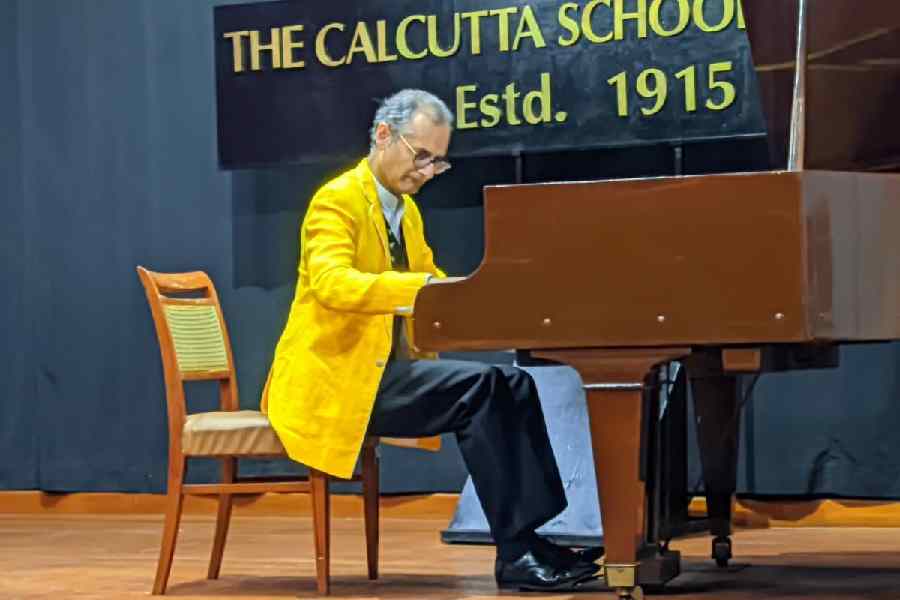The renowned British-Goan pianist, Karl Lutchmayer (picture), known for his interest in late 19th and early 20th century music, returned to the Calcutta School of Music for a recital featuring the works of Johannes Brahms. Held at Sandré Hall, the performance drew a mixed audience of music students, long-time classical music enthusiasts, and curious first-timers — each member in the audience was visibly moved by the emotional depth and the technical prowess that Lutchmayer brought to his performance. Playing a carefully curated selection of Brahms’s piano works, Lutchmayer allowed the emotional weight of 19th-century Romanticism to meet the quiet hush of an attentive, contemporary audience.
In between the pieces, Lutchmayer offered the audience poignant insights into Brahms’s personal life, one marked by unrequited love and loss and how those sorrows bled into his compositions. This contextual lens allowed listeners to approach the evening’s music with a deeper emotional awareness.
Lutchmayer’s interpretation was both reverent and reflective. He didn’t indulge in showmanship; nor did he try to impress with overly dramatic flourishes. Instead, he allowed the music to breathe. Each musical piece unfurled slowly, often pausing just long enough to let a silence settle before the next note, lending the concert a rare emotional intimacy.
Technically, the playing was controlled and textured. At times, his fingers hovered delicately over the keys, barely touching them; at other times, they plunged deep, coaxing a thunderous low register that rumbled through the hall. It was not just a performance but a meditation — on love, on loss, and on the passage of time. By the end of the evening, one could sense a gentle stillness in the room, an afterglow of music that had not only been heard but deeply felt.










